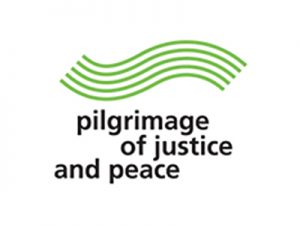Reflection on pilgrimage of justice and peace: Welcoming Refugees

This article is a contribution from Canadian Quakers to the WCC call to journey in justice and peace.
Friends in Canada have been welcoming refugees since the 19th C., when work was done to bring Doukhobors living under persecution in Czarist Russia to Canada. In later times Friends joined many others working in the refugee camps in Europe following WWII, and with Asian victims of the wars in Vietnam and Laos both overseas and in migration. Much of this work was interfaith in nature, but in recent times our joining together with other faith communities to help relieve the plight of the largest surge in refugees since WWII has become the favoured way of carrying out this mission. The result has been not only the obvious benefits to the many individuals and families re-settling here, it has also meant much for the building of new community ties, greater understanding of the other, and the strengthening of our own faith.
An appeal for stories brought responses from twelve of our Meetings (congregations) scattered from the Atlantic to the Pacific. It is representative of what is happening in many of our other Meetings both in the past and present. Almost all of our Meetings are small, very small by comparison to other congregations, and the joining together with others has been partly practical, but also a reaching out into our communities to share the work that our faith leads us to do.
The multiplicity of the various interfaith groups with whom we work is reflective of the diversity we all experience in our communities. It includes “mainline churches” such as the United, Anglican, and Lutheran churches. Friends are also working with Roman Catholic organizations, with other peace churches such as the Mennonites, and faith communities other than Christian including Unitarian, Jewish, Muslim, and Buddhist. All of these are represented in the stories received.
The refugees themselves come from different parts of the world: Syria and Iraq often by way of camps in neighbouring countries, Africa including Eritrea and Ethiopia, Thailand and Myanmar. They also represented various religious faiths: Muslim, Orthodox, Buddist, Roman Catholic. It meant a mingling of faiths in all aspects of the helping paradigm.
It is also important to note that most of the local committees working together to sponsor and support refugees coming to Canada have also worked alongside secular community organizations, both for their expertise and for their connections with government and agencies serving the needs of migrants and refugees. It too is a reaching out beyond the confines of our own faith communities in a common cause.
Simply from the perspective of our own Meetings, this work has offered opportunities to build our own community and to reach out in new ways.
This has had the “benefit of mobilizing some peripheral Friends and new participants.”
“It has been a long sought opportunity to experience diversity of my city and be of service.”
The list of activities carried out by these local interfaith committees is daunting. Virtually all engage in fund raising, often raising significantly large sums to support privately sponsored families. Volunteers work hard to find suitable housing, furnishings, clothing, food, children’s toys, to provide transportation, find medical services, and generally ensure that when the refugees arrive they will feel both welcomed and well supported.
The relationships that have been formed, not only among people from various faith groups, but also between the helpers and the helped have resulted in some wonderful new experiences for all involved.
The leadership of refugees “is a wonderful gift to us.”
It has been “an opportunity to practice language learning skills. Even the grey heads learn to utilize the phone translation app and witness the sunshine of a smile when light shines on understanding a new word”
“The community spirit manifest in all these efforts is wonderful to experience.”
One of the perhaps unanticipated consequences of the relationships that grew out of this work was an increased awareness of the existence and affect of racist and intolerant attitudes on the part of some people in the communities where refugees were settling. It led to some interfaith groups sponsoring workshops to address these issues, and to discussion groups within others to begin to get at the root causes of people fleeing their homelands, fearful for their lives and anxious about the future for their children.
Best of all perhaps, like any shared journey, the interfaith work and outreach into the local communities has resulted in a deepening of faith, regardless of the differences that may underpin that faith.
It has been “a fine opportunity to make our Quaker values real, to work and learn together and to involve the larger community in our effort.”
I have “a depth of gratitude and learning … in moving closer to people not usually in my Quaker circle … whom I have only known at arms length….We are working into a vision of caring and inclusion. We have a voice and presence in the community which is also strengthening for others as a model of how to peacefully live together.”
It seems quite likely that the relationships formed through this work will endure, that coming to understand the nuances of faith among varied groups of people, the cultural richness and benefit of experiencing new ways of being will favour us all in the end.




